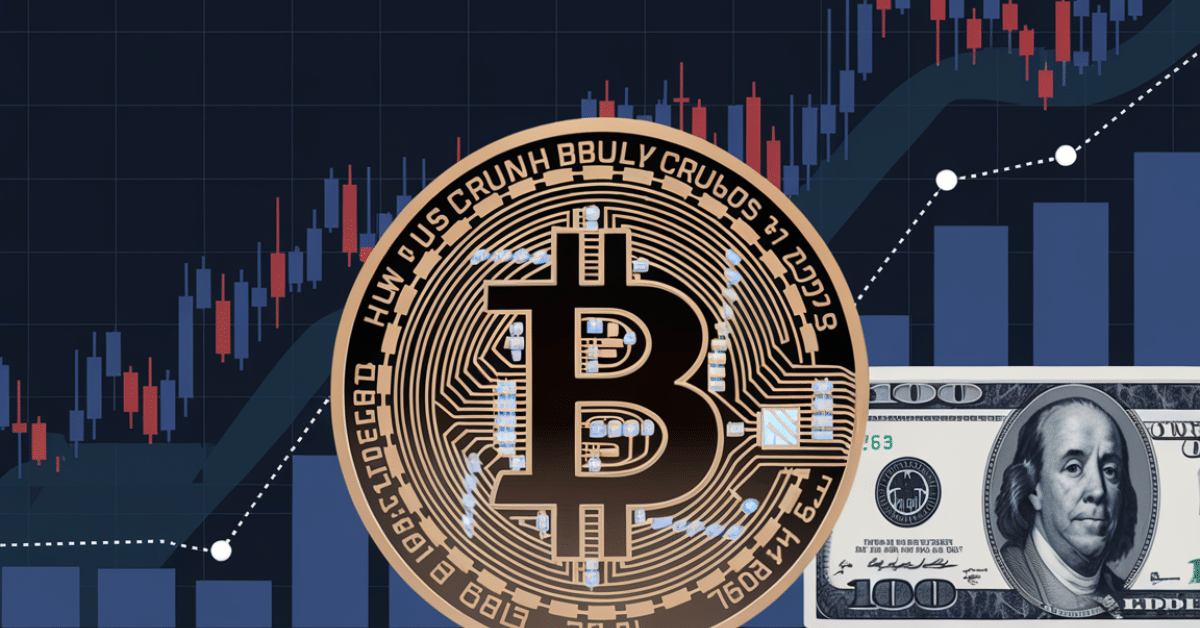Key Takeaways
- To buy crypto in South Africa, pick a trusted exchange, select a legal exchange, complete KYC verification, fund your account, and decide how to store your coins securely.
- Selling is just as simple, transfer your coins to an exchange, set your price, sell, and withdraw your money.
- Stay informed on South Africa’s crypto regulations, taxation rules, and secure storage practices to make sound trading decisions.
Cryptocurrency is growing rapidly in South Africa, offering new opportunities to invest, trade, and diversify finances. It’s legal to own and trade crypto, but profits are taxable, making it important to stay informed and cautious. In this blog, we’ll cover everything you need to know about buying and selling crypto in South Africa.
How to Buy Crypto in South Africa?
Buying cryptocurrency in South Africa is a simple process. Here are the steps involved:
Pick a Platform to Buy Crypto
To buy cryptocurrency, you need to use a trusted platform called a crypto exchange. In South Africa, popular ones include Luno, Valr, Binance, Bybit, etc. Pick one based on what you need. If you’re starting small, Luno or Valr is perfect since they work well with South African banks.
Sign Up and Verify Your Account
Once you pick an exchange, the next step is to register an account:
Go to the exchange‘s website and create an account.
Complete the KYC process (Know Your Customer). This involves uploading documents like:
- Your South African ID or passport.
- Proof of Address, such as a recent utility bill or bank statement (not older than 3 months).
FICA compliance is mandatory on South African exchanges like Luno and Valr to ensure your account is secure and legally compliant.
Deposit South African Rands (ZAR)
After registration, you’ll need to deposit funds into your exchange account:
Select Payment Method: Use an EFT (Electronic Funds Transfer) via your bank. Alternatively, use instant EFT services like PayFast or Ozow for quicker deposits.
Bank Details: The exchange will give you their bank account details and a reference number. Use this reference number in your payment.
Wait for Confirmation: EFTs usually take a few hours to reflect, but instant EFTs are processed within minutes.
Most banks in South Africa, like Capitec, FNB, or Standard Bank, work well with these platforms. Instant EFT is quicker but might have slightly higher fees.
Buy Cryptocurrency
Once your funds are deposited, it’s time to buy your first cryptocurrency.
- Go to the Buy/Sell section on the exchange.
- Choose the cryptocurrency you want (e.g., Bitcoin or Ethereum).
- Enter how much you want to buy in Rands.
- Review the transaction details and click Confirm.
Secure Your Crypto
It’s important to store your crypto securely. There are two ways to do this:
Keep It on the Exchange: Easy and convenient, but not the safest. If the exchange gets hacked, you could lose your funds.
Use a Hardware Wallet: A small physical device that stores your crypto offline, making it much safer. Recommended Wallets for South Africans:
- Ledger Nano X: Ideal for long-term investors.
- Trezor Model T: Easy to use and supports multiple coins.
- Ellipal Titan: Perfect for those looking for maximum security.
Monitor Your Investments
To keep track of your portfolio, use apps like Blockfolio or CoinMarketCap. For advanced analysis, try TradingView. Set price alerts on your chosen app so you can act quickly when prices rise or fall.
Maintain Tax Records
Cryptocurrency is taxable in South Africa. SARS views crypto as an asset, so any gains are subject to Capital Gains Tax (CGT). Keep a record of all your transactions to make tax filing easier. For large trades, consider consulting a tax professional.
How to Sell Cryptocurrency in South Africa?
If you’ve bought cryptocurrency and are ready to sell it, this guide will walk you through the steps to convert it back into South African Rand (ZAR). Here’s everything you need to know:
Log in to Your Crypto Exchange Account
To sell cryptocurrency, start by logging into the exchange where you currently hold your crypto. Whether it’s Luno, Valr, Binance, or another platform, use the same account you used to buy the cryptocurrency.
Transfer Crypto to the Exchange (If Necessary)
If your cryptocurrency is stored in a private wallet (like a Ledger or Trezor), you need to transfer it to the exchange before selling.
Here’s how to do it:
- Go to the “Deposit” or “Receive” section on the exchange.
- Copy the wallet address provided (make sure it’s for the correct cryptocurrency, e.g., Bitcoin or Ethereum).
- Open your private wallet and send the crypto to this address.
- Wait for the transaction to be confirmed (it usually takes a few minutes).
Always double-check the wallet address. Crypto transactions cannot be reversed.
Go to the Sell Section
Once your crypto is in the exchange, find the “Sell” option. This is usually in the same section as the “Buy/Sell” or “Trade” feature.
Choose How You Want to Sell (Market vs Limit Orders)
You can sell your crypto using a market order or a limit order.
- A market order sells instantly at the current price, which is perfect for quick transactions but may not get the best rate.
- A limit order lets you set your selling price, and the transaction happens only when the market reaches it. This is ideal for getting a better price if you’re not in a hurry. Choose based on how fast you need to sell!
Wait for Confirmation
Once you’ve placed your market or limit order:
- For market orders, the sale is completed instantly.
- For limit orders, you’ll need to wait until the market price matches your set price. You can track the progress in the “Open Orders” section of the exchange.
Withdraw Funds to Your Bank Account
After selling your cryptocurrency, the ZAR will appear in your exchange wallet. To get the money into your bank account:
- Go to the “Withdraw” section on the exchange.
- Enter your bank account details (if not already saved).
- Enter the amount you want to withdraw.
- Confirm the withdrawal.
Most exchanges only allow withdrawals to bank accounts in your name, as per South African regulations. Double-check withdrawal fees before transferring.
Some exchanges charge a flat fee or percentage for withdrawing Rands. EFT withdrawals can take 1–2 business days, while instant EFTs are quicker but may cost more.
Record Your Transactions
Keep a record of your sales and withdrawals for tax purposes. SARS requires South Africans to declare any crypto-related income or capital gains.
Popular Exchanges in South Africa
Luno
Luno is the leading exchange in South Africa, boasting over 10 million users globally, with a significant portion based locally. It allows direct Rand (ZAR) deposits and withdrawals via EFT and Instant EFT, making it ideal for first-time users. Luno handles more than R100 billion in transactions annually in South Africa and is one of the most trusted platforms for Bitcoin (BTC) and Ethereum (ETH).
What Makes It Unique:
- Beginner-friendly with a mobile app designed for simplicity.
- It offers educational resources like Luno Learn, which are tailored to beginners in South Africa.
- High trust factor among South African banks like Capitec and FNB.
Ideal for buying, selling, and holding Bitcoin or Ethereum with easy-to-understand tools.
Valr
Valr is a homegrown South African exchange with competitive fees, offering more than 60 cryptocurrencies to trade. It provides a seamless experience for both beginners and advanced traders. Valr offers some of the lowest fees in the market—as low as 0.1% for trades. It has facilitated over R10 billion in trades since its launch.
What Makes It Unique:
- Instant ZAR deposits and withdrawals.
- Advanced tools for traders, including charting options and limit orders.
- Local customer service that understands the South African market.
Perfect for South Africans looking for low fees and access to a wide variety of cryptocurrencies.
Binance
Binance is a global giant that’s also widely used in South Africa, thanks to its low fees, access to over 350 cryptocurrencies, and advanced features like staking, futures, and margin trading. Binance handles over $2 trillion in monthly trading volume globally and is one of the most liquid platforms, which means quick transactions even for large amounts.
What Makes It Unique:
- Offers P2P trading with ZAR, allowing South Africans to buy and sell directly with others using local payment methods like bank transfers.
- Advanced features like staking to earn passive income on your crypto.
- Extremely low trading fees, starting at 0.075%.
Ideal for advanced traders or those looking to trade lesser-known coins (altcoins) not available on local platforms.
Bybit
Bybit is rapidly gaining traction in South Africa among experienced traders who want access to advanced tools like leverage trading and derivatives. Bybit processes over $10 billion in daily trading volume globally and supports advanced tools like perpetual contracts.
What Makes It Unique:
- No KYC policy for smaller transactions, providing quick access to the platform.
- Offers margin and futures trading with up to 100x leverage, making it attractive for risk-tolerant traders.
- Simple user interface despite its advanced tools.
Best for experienced traders looking for high-risk, high-reward trading options.
Kraken
Kraken is well-regarded for its focus on security and reliability, making it popular with South Africans who prioritize safety. While not specifically tailored to the local market, its reputation and security features make it a solid choice. Kraken is one of the oldest exchanges, with over $1 billion traded daily. It supports a wide variety of coins, including rarer options.
What Makes It Unique:
- High-level security features like cold storage and multi-factor authentication.
- Advanced trading tools, including margin and futures.
- Trusted by institutions and serious investors.
Ideal for long-term investors and those who value security over convenience.
Coinbase
Coinbase is often the go-to exchange for beginners globally and has a small but growing user base in South Africa. While it doesn’t support ZAR directly, its ease of use makes it a popular choice for newcomers. Coinbase has over 110 million verified users worldwide and is listed on the Nasdaq stock exchange.
What Makes It Unique:
- Extremely beginner-friendly with a sleek, intuitive interface.
- Supports automatic recurring buys to dollar-cost-average investments.
- Focus on compliance and transparency.
Best for users who are new to crypto and want a simple, straightforward experience.
How to Choose the Best Crypto Exchange in South Africa?
Ease of ZAR Deposits and Withdrawals: Exchanges like Luno and Valr are better for South Africans as they integrate with local banks for easy EFT and Instant EFT payments.
Fees: Local exchanges like Valr offer lower fees compared to international platforms like Coinbase.
P2P Trading: Binance’s Peer-to-Peer (P2P) trading feature is helpful for South Africans looking for alternative ways to buy or sell crypto directly with others.
Regulatory Compliance: Always use exchanges that comply with South African laws to avoid legal issues or scams.
Regulations and Taxations in South Africa
In South Africa, cryptocurrencies like Bitcoin are legal but not considered official money. The South African Revenue Service (SARS) treats them as assets, so any profits you make from buying and selling crypto are taxable.
Tax Responsibilities:
- Income Tax: If you earn crypto through activities like mining or staking, it’s considered income. You’ll need to report this income and pay tax on it, with rates ranging from 18% to 45%, depending on your total earnings.
- Capital Gains Tax: If you sell or trade crypto as an investment, any profit is subject to capital gains tax. Individuals are taxed on 40% of the gain, and the first R40,000 of profit each year is exempt. The effective tax rate can be up to 18%, depending on your income bracket.
Regulations:
The Financial Sector Conduct Authority (FSCA) oversees crypto activities in South Africa. In October 2022, the FSCA classified crypto assets as financial products, meaning that platforms offering crypto services must register as financial service providers.
In November 2024, the Financial Intelligence Centre (FIC) issued Directive 9, requiring crypto platforms to verify the identities of both parties in a transaction. This aims to combat money laundering and improve financial security.
Conclusion
Cryptocurrency can be exciting, but it’s important to stay cautious. Avoid scams—if someone promises guaranteed profits, it’s likely a trap. Stick to trusted platforms like Luno or Valr.
Start small and only invest what you can afford to lose. Stay updated by following reliable news like MyBroadband or CoinDesk, and join local Facebook or Telegram groups to learn from others. With a little care and research, you can safely navigate the world of crypto and make smart decisions. Take your time, and always think before you act!























